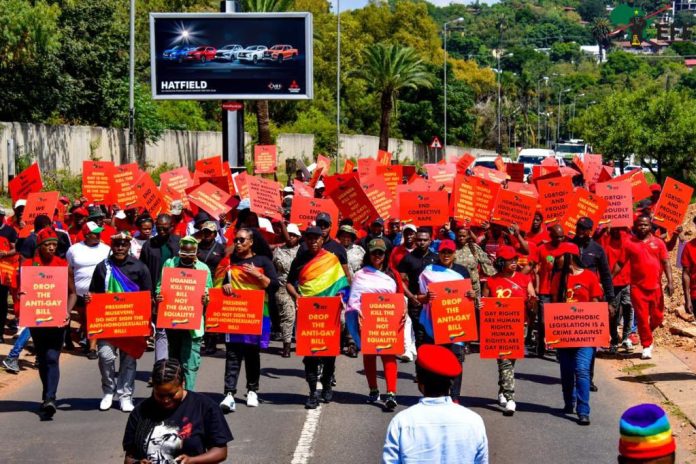The Chair of the Committee on Development calls for a much stronger EU response to support the rights of LGBTIQ persons in Uganda, in response to the government’s Anti-Homosexuality Act.
Tomas Tobé, chair of the European Parliament’s Committee on Development, considers the EU response to the promulgation of the Anti-Homosexuality Act in Uganda as inadequate.
Despite its leading role in calling for equality for lesbian, gay, bisexual, trans-sexual, intersex, and queer (LGBTIQ) persons around the world, the EU is failing to use all available tools at its disposal to abide by its principles in Uganda.
On 19 April 2023, the European Parliament adopted a resolution condemning in the strongest possible terms the bill adopted by the Ugandan Parliament in March 2023 and calling on the Commission to adopt various measures should it be signed into law.
As the President of Uganda decided to promulgate the bill, despite the mobilisation of the international community, Mr Tobé addressed a letter to High Representative/Vice President Josep Borrell (HRVP) in June 2023 and referring to the EP resolution. He urged the Commission, under the supervision of the HRVP, to send a strong and clear message to the Ugandan authorities, making use of all available tools, including those under the ‘essential elements’ clause of the Cotonou Agreement. The Commission responded saying it would take into account this proposal in their reaction to the Ugandan decision.
It is therefore a source of concern, says Mr Tobé, that the EU announced last week that it would not suspend its bilateral development assistance to the country. While the announcement that more funds would be allocated to civil society and human rights defenders is welcome, the non-suspension of the bilateral assistance programme is a missed opportunity for the EU to demonstrate its commitment to the fundamental principle of non-discrimination. The EU could have taken a much stronger stance, following for example the decision of the US to impose visa restrictions or the World Bank’s move to suspend all new public loans.
It is particularly worrying, given charges of ‘aggravated homosexuality’ are already being made and prosecuted under the new legislation – decisions which could lead to sentences that include the death penalty. The EU must act, in line with its commitment to promote and protect the rights of LGBTIQ persons and to advocate for the total abolition of capital punishment.

